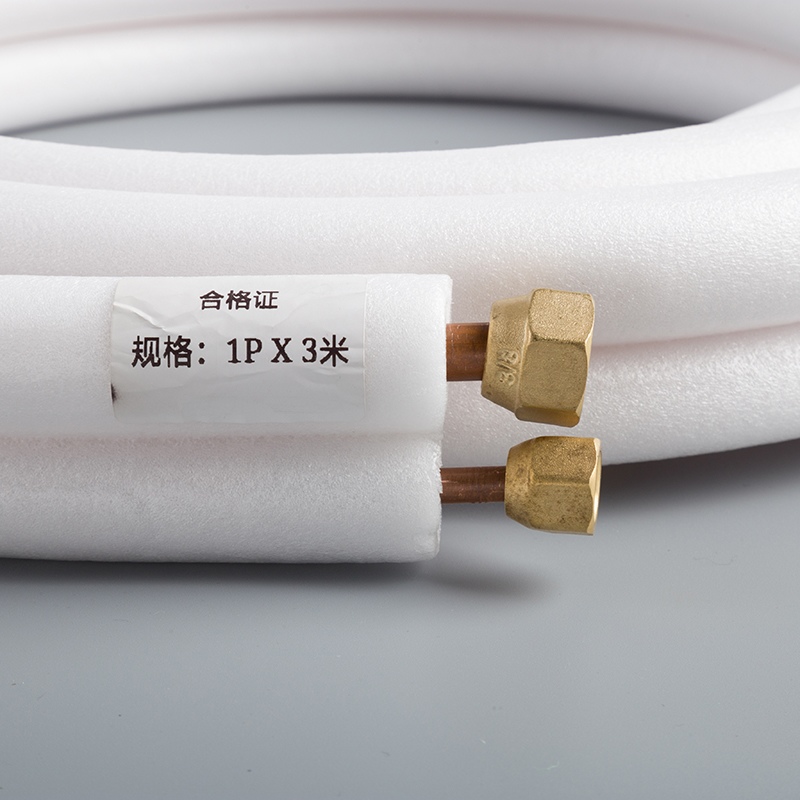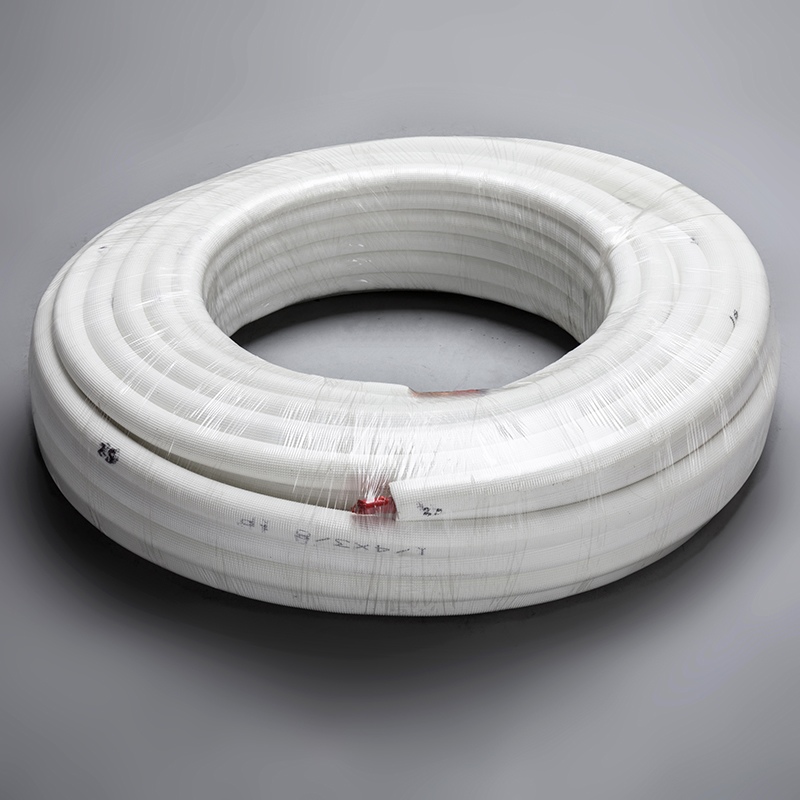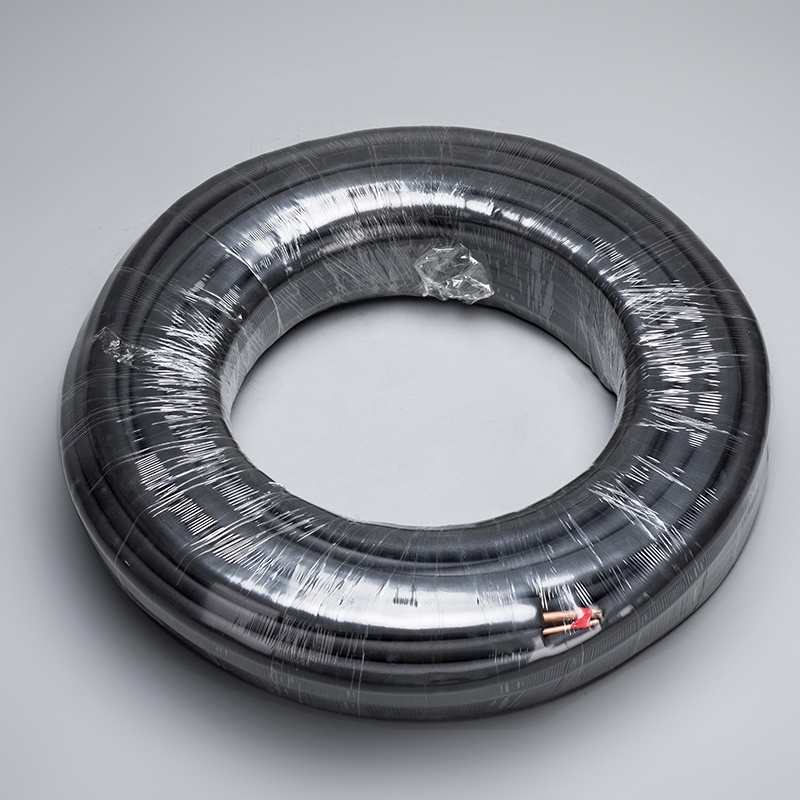How Thermal Insulation Improves AC Efficiency

In modern homes, energy efficiency is paramount. Thermal insulation plays a crucial role in maintaining comfortable indoor temperatures and reducing utility costs. By creating a barrier that minimizes heat transfer, insulation significantly enhances air conditioning (AC) efficiency. Studies have shown that upgrading insulation can lead to substantial energy savings of up to 20% or more. Proper insulation not only improves HVAC performance but also contributes to lower energy bills and reduced carbon footprint.
How Thermal Insulation Enhances Air Conditioner Efficiency
When it comes to optimizing your home's energy use, understanding how thermal insulation enhances air conditioner efficiency is key. Insulation acts as a thermal barrier, preventing heat from entering your home during the summer and keeping the cool air inside. This reduces the workload on your AC system, allowing it to operate more efficiently. By minimizing heat transfer, insulation ensures that your air conditioner doesn't have to work as hard to maintain a comfortable temperature, leading to lower energy consumption and extended lifespan of your HVAC system. Upgrading your insulation can result in significant energy savings and a more eco-friendly home.
The Role of Thermal Insulation

Insulation Materials
In the realm of insulation materials, Fiberglass stands out as a popular choice due to its affordability and effectiveness. According to experts from the local residential construction industry within Pakistan, Polyethylene was identified as the most economical insulation material among others, showcasing superior thermal performance. This makes it a compelling option for homeowners looking to enhance their AC efficiency while maintaining cost-effectiveness.
When considering Spray Foam, it's essential to recognize its unique properties that contribute to optimal insulation. As highlighted by experts in the field, Polyethylene has demonstrated remarkable thermal efficiency compared to other insulation materials. Its ability to create a seamless barrier against heat transfer makes it a valuable asset in improving overall energy conservation within homes.
Understanding the mechanisms of heat transfer is crucial in appreciating the role of insulation in AC efficiency. Conduction, convection, and radiation are fundamental processes that impact thermal regulation within living spaces. By leveraging effective insulation materials like Polyethylene, homeowners can disrupt these heat transfer mechanisms and maintain a comfortable indoor environment throughout the year.
How Insulation Works
The functionality of insulation revolves around two key aspects: creating a thermal barrier and reducing heat transfer. Through the installation of quality insulation materials such as Polyethylene, households can establish a protective shield that minimizes temperature fluctuations. This not only fosters a cozy living atmosphere but also alleviates the strain on HVAC systems, leading to enhanced energy efficiency.
Benefits of Improved AC Efficiency

Energy Savings
Lower Energy Bills: Proper insulation significantly reduces the need for excessive heating or cooling, resulting in lower energy bills and substantial cost savings over time. By creating a thermal barrier that locks in temperatures, homeowners can enjoy a more comfortable living environment without the added expense of high utility bills.
Reduced Carbon Footprint: Effective insulation not only benefits your wallet but also the environment. By optimizing HVAC performance and minimizing energy consumption, insulation plays a vital role in reducing carbon emissions. This eco-friendly approach contributes to a sustainable lifestyle while promoting energy efficiency within homes.
Enhanced HVAC Performance
Optimized Cooling: Insulation acts as a shield against heat transfer, ensuring that cool air remains inside during hot weather. This optimization allows your HVAC system to operate efficiently without overworking to maintain desired indoor temperatures. As a result, you experience enhanced cooling comfort while prolonging the lifespan of your air conditioner.
Reduced Wear and Tear: With improved insulation, the strain on your HVAC system is minimized as it operates under optimal conditions. By preventing heat loss or gain through proper insulation, you reduce wear and tear on essential components of your air conditioning unit. This proactive measure not only extends the longevity of your HVAC system but also lowers maintenance costs in the long run.
Comfort and Consistency
Stable Indoor Temperatures: Insulation creates a stable indoor environment by regulating temperature fluctuations throughout different seasons. Whether it's scorching hot or freezing cold outside, quality insulation ensures that your home maintains consistent temperatures for ultimate comfort. This stability enhances your overall living experience by providing a cozy atmosphere year-round.
Improved Air Quality: By sealing off gaps where heat could escape or enter, insulation not only maintains temperature consistency but also improves indoor air quality. With fewer drafts and external pollutants infiltrating your home, you breathe cleaner air and enjoy a healthier living space overall.
Future Considerations
Advances in Insulation Technology
In the realm of insulation technology, continuous advancements pave the way for enhanced energy efficiency and sustainable living. Innovations in materials and installation techniques are revolutionizing the way homeowners approach thermal regulation within their spaces. Glass wool, Polyethylene, and Extruded polystyrene stand out as key players in the insulation landscape, each offering unique benefits tailored to specific environmental needs.
When comparing these materials, Polyethylene emerges as a standout choice due to its exceptional thermal performance and cost-effectiveness. Particularly in cold regions like Pakistan, where residential buildings require robust insulation against harsh climates, Polyethylene proves to be a reliable solution. Its ability to create a seamless barrier against heat transfer ensures optimal energy conservation while maintaining comfortable indoor temperatures throughout the year.
Looking at retrofitting measures implemented globally, adding thermal insulation to walls and roofs has been proven to yield significant energy savings. By investing in quality insulation materials and professional installation services, homeowners can not only reduce their utility bills but also contribute to a greener environment by minimizing energy consumption.
As buildings age, their energy efficiency becomes increasingly sensitive to wear and tear, especially affecting mechanical components like HVAC systems. Proper insulation plays a crucial role in preserving the longevity of these systems by reducing strain and optimizing performance. By staying informed about the latest trends in insulation technology and considering long-term benefits, homeowners can proactively enhance their living spaces for improved comfort and sustainability.
Thermal insulation is not just about keeping your home warm in winter; it's a crucial element in optimizing your air conditioning efficiency year-round. By reducing heat transfer and maintaining stable indoor temperatures, insulation offers significant benefits for both your comfort and your wallet. Homeowners who invest in insulation upgrades can expect lower energy bills, reduced carbon footprint, and enhanced HVAC performance. Consider the testimonials of families who saw their heating costs drop by half or office buildings that cut air conditioning expenses by 60% after upgrading their insulation. Make the smart choice for your home and explore insulation improvements today!
See Also
Revealing the Magic of Copper Pipes for AC Efficiency
Exploring How Copper Tubes Affect AC Efficiency
The Superiority of Copper Tubes for AC Efficiency


